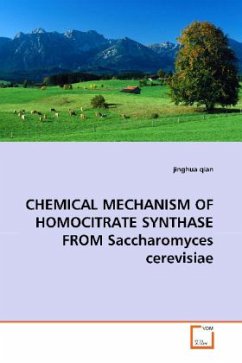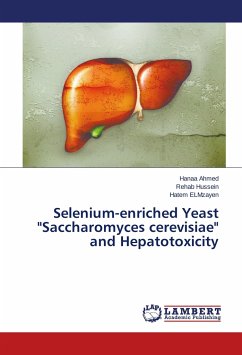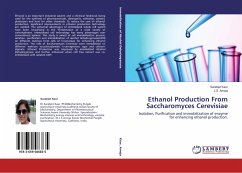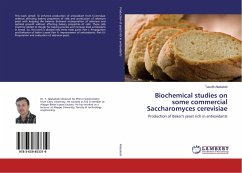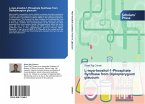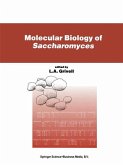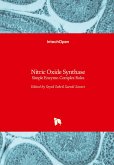Homocitrate synthase (HCS1) (acetyl-coenzyme A:
2-ketoglutarate C-transferase; E.C. 2.3.3.14)
catalyzes the first and regulated step in the
a-aminoadipate pathway for lysine synthesis.
The pH dependence of the kinetic parameters, isotope
effects, and dissociation constants for competitive
inhibitors are used to probe the chemical mechanism
of HCS. A general acid-base chemical mechanism is
proposed. site-directed mutagenesis was used to
change the three active site residues of HCS, and the
resulting mutant enzymes were characterized using
initial velocity studies, the pH dependence of the
kinetic parameters and isotope effects. Data
combined with a constant pH molecular dynamics
simulation study suggest a catalytic dyad, comprised
of Glu-155 and His-309, functions as a general base
to deprotonate the methyl group of AcCoA.
2-ketoglutarate C-transferase; E.C. 2.3.3.14)
catalyzes the first and regulated step in the
a-aminoadipate pathway for lysine synthesis.
The pH dependence of the kinetic parameters, isotope
effects, and dissociation constants for competitive
inhibitors are used to probe the chemical mechanism
of HCS. A general acid-base chemical mechanism is
proposed. site-directed mutagenesis was used to
change the three active site residues of HCS, and the
resulting mutant enzymes were characterized using
initial velocity studies, the pH dependence of the
kinetic parameters and isotope effects. Data
combined with a constant pH molecular dynamics
simulation study suggest a catalytic dyad, comprised
of Glu-155 and His-309, functions as a general base
to deprotonate the methyl group of AcCoA.

